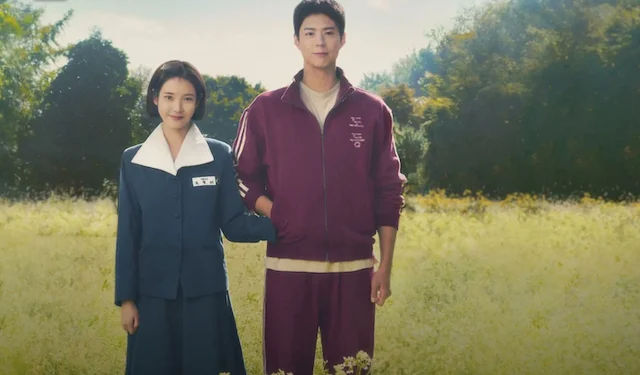Exploring Resilience and Culture in Netflix’s *When Life Gives You Tangerines*
The latest Netflix series, *When Life Gives You Tangerines*, presents an engaging narrative featuring unique characters immersed in the enchanting scenery of Jeju Island. The English title serves as a translation of the local phrase “Pokssak Sogatsuda,” which translates to “Thank you for your hard work.” This title embodies a spirit of resilience, reminding viewers that life can be beautiful if we learn to make the best out of our circumstances—much like brewing a soothing cup of tea using the island’s renowned tangerines.
A Journey into the Lives of Jeju Island’s Inhabitants
The story follows Ae-sun, a spirited young girl with a poetic heart, and Gwan-sik, a humble man devoted to his family. Together, they form a narrative bond that drives the series’ emotional core.
Set against the backdrop of Jeju Island, steeped in rich traditions and cultural nuances, the series not only tells a tale of personal growth but also explores the historical and spiritual significance of the area. Jeju is distinguished by its strong connection to nature and local deities, with many shrines (dang) dotting the landscape. This cultural essence influences the characters, particularly through the shamanistic beliefs held by Gwan-sik’s grandmother.
Star-Studded Cast and Cultural Significance
*When Life Gives You Tangerines* features a remarkable ensemble cast, including IU, who stars as both young Ae-sun and her daughter, Geum-myeong. Park Bo-gum plays the young Gwan-sik, while Park Hae-joon portrays the elder version. Lee Jun-young takes on the role of Geum-myeong’s first love, Yeong-bum, while Kim Seon-ho appears in a significant cameo as Geum-myeong’s husband, Cheong-seob.
A distinctive aspect of Jeju’s identity is the haenyeo, the extraordinary female divers who have retrieved marine treasures for generations without modern breathing equipment. Their portrayal in the series highlights the concurrent strength and resilience of women on the island, often serving as the economic anchors of their households within a semi-matriarchal society.
Notably, the focus on characters like Ae-sun’s mother and aunts further allows audiences to examine societal expectations and the social conditions affecting women in this unique community.
The series is set against the historical backdrop of the Jeju Uprising (1948-1949), a tumultuous period marked by severe violence. The impact of this tragic chapter in history subtly weaves into the characters’ lives, influencing their perspectives and emotional responses, although it is not the primary focus of the narrative.
Family Dynamics and Women’s Evolving Roles
Spanning from the 1950s to the present day, *When Life Gives You Tangerines* illustrates the shifting dynamics of family life and societal frameworks in South Korea. Traditional Confucian values often prioritized male heirs, typically leading to a skewed treatment between sons and daughters. This is reflected in Ae-sun’s experiences as she is burdened with household responsibilities from a young age, while her brothers enjoy more freedom.
The series masterfully exhibits these evolving gender roles through its characters, especially Geum-myeong, whose ambition to pursue education abroad highlights the societal pressures women face in a transforming landscape. This pursuit of knowledge is presented as a metaphor for broader cultural progress and aspirations.
Symbolism Rich in Meaning
The ocean signifies both the sustenance and dangers of life on Jeju Island. It is essential for the livelihoods of characters like Ae-sun and Gwan-sik; however, it also brings heart-wrenching tragedies, such as the loss of loved ones to its depths.
This dichotomy adds depth to the narrative, inviting viewers to relate to universal human experiences of love, loss, and sacrifice. At the heart of the series is the enduring love bond between Ae-sun and Gwan-sik, showcasing the strength of relationships in challenging times.
A Legacy of Sacrifice and Love
Ae-sun’s mother’s dedication serves as an example of parental love, as she embraces the life of a haenyeo, bestowing her daughter the chance for a brighter future. In a poignant moment in episode 8, Ae-sun and Gwan-sik make the profound decision to sell their home to fund Geum-myeong’s education in Japan, showcasing the theme of self-sacrifice embedded within the narrative.
*When Life Gives You Tangerines* transcends a mere romantic storyline, evolving into a thoughtful narrative that reflects the multifaceted life of Jeju Island across various generations. It intricately connects personal stories with the cultural and historical narratives of Korea, creating a richer understanding of its past and the evolving roles within its society.
The final four episodes of the series are set to premiere on March 28, 2025, on Netflix, promising to delve deeper into the intertwined lives of its characters and the enduring spirit of Jeju Island.


